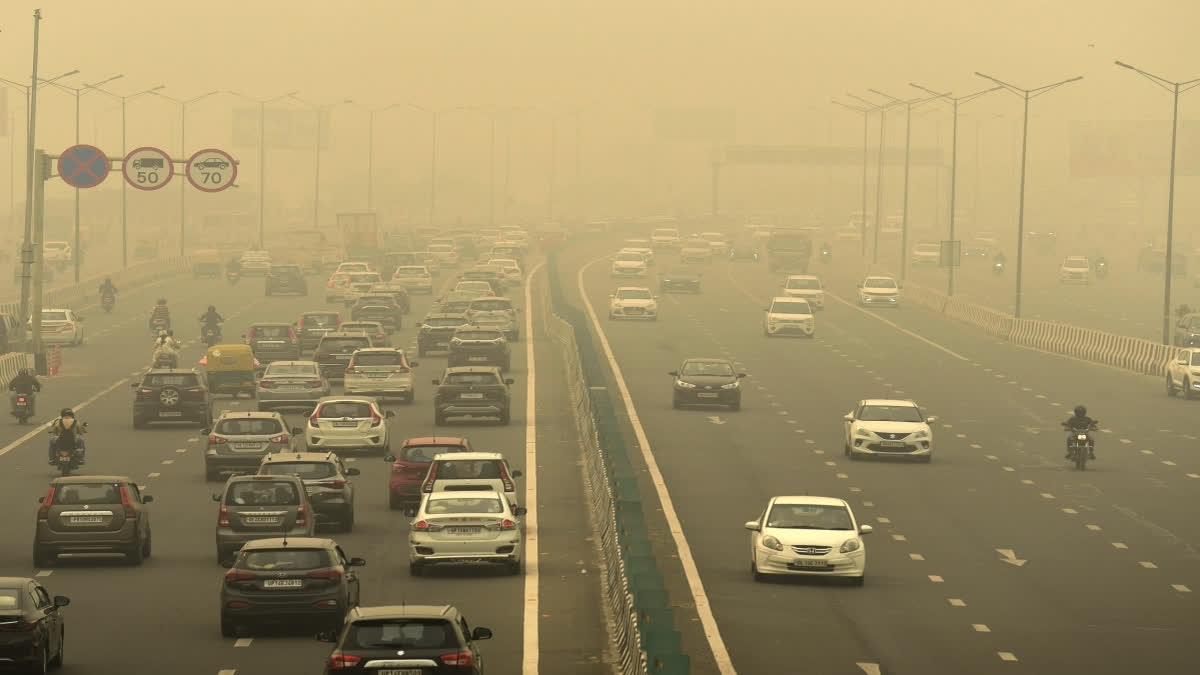New Delhi:Delhi air quality entered the 'severe plus' category for the second time in three days due to unfavourable wind conditions and a sharp rise in farm fires across north India as a result of which stringent curbs, including a ban on entry of polluting trucks has been enforced in the national capital.
A toxic haze persisted over Delhi-NCR for the sixth consecutive day, obscuring landmarks from view and causing significant problems for people with existing respiratory issues. The 24-hour average Air Quality Index (AQI), recorded at 4 pm every day, worsened from 415 on Saturday to 454 on Sunday, prompting the Centre to implement all emergency measures mandated under the final Stage IV of its air pollution control plan called the Graded Response Action Plan (GRAP).
GRAP categorises actions into four stages: Stage I - 'Poor' (AQI 201-300); Stage II - 'Very Poor' (AQI 301-400); Stage III - 'Severe' (AQI 401-450); and Stage IV - 'Severe Plus' (AQI >450). Unfavourable meteorological conditions combined with vehicular emissions, paddy straw burning, firecrackers and other local pollution sources contribute to hazardous air quality levels in Delhi-NCR during the winter every year.
According to a Delhi Pollution Control Committee (DPCC) analysis, the capital experienced peak pollution from November 1 to November 15 when the number of stubble-burning incidents in Punjab and Haryana increased. According to the New Delhi-based Indian Agricultural Research Institute (IARI), a total of 4,160 farm fires were reported from north India on Sunday -- the highest so far this season.
Punjab alone reported 3,230 incidents of stubble burning, the state's highest in a day so far this season, according to Punjab Remote Sensing Centre data. The Commission for Air Quality Management (CAQM), a statutory body responsible for formulating strategies to combat pollution in the region, asked Delhi and NCR states to order a ban on construction work related to linear public projects and allow 50 per cent of the staff in government and private offices to work from home.
Under Stage IV of GRAP, only CNG, electric and BS VI-compliant vehicles from other states are allowed to enter Delhi. Exemptions are granted only to those involved in essential services. All medium and heavy goods vehicles not engaged in essential services are also banned in the capital, according to the latest CAQM order.
